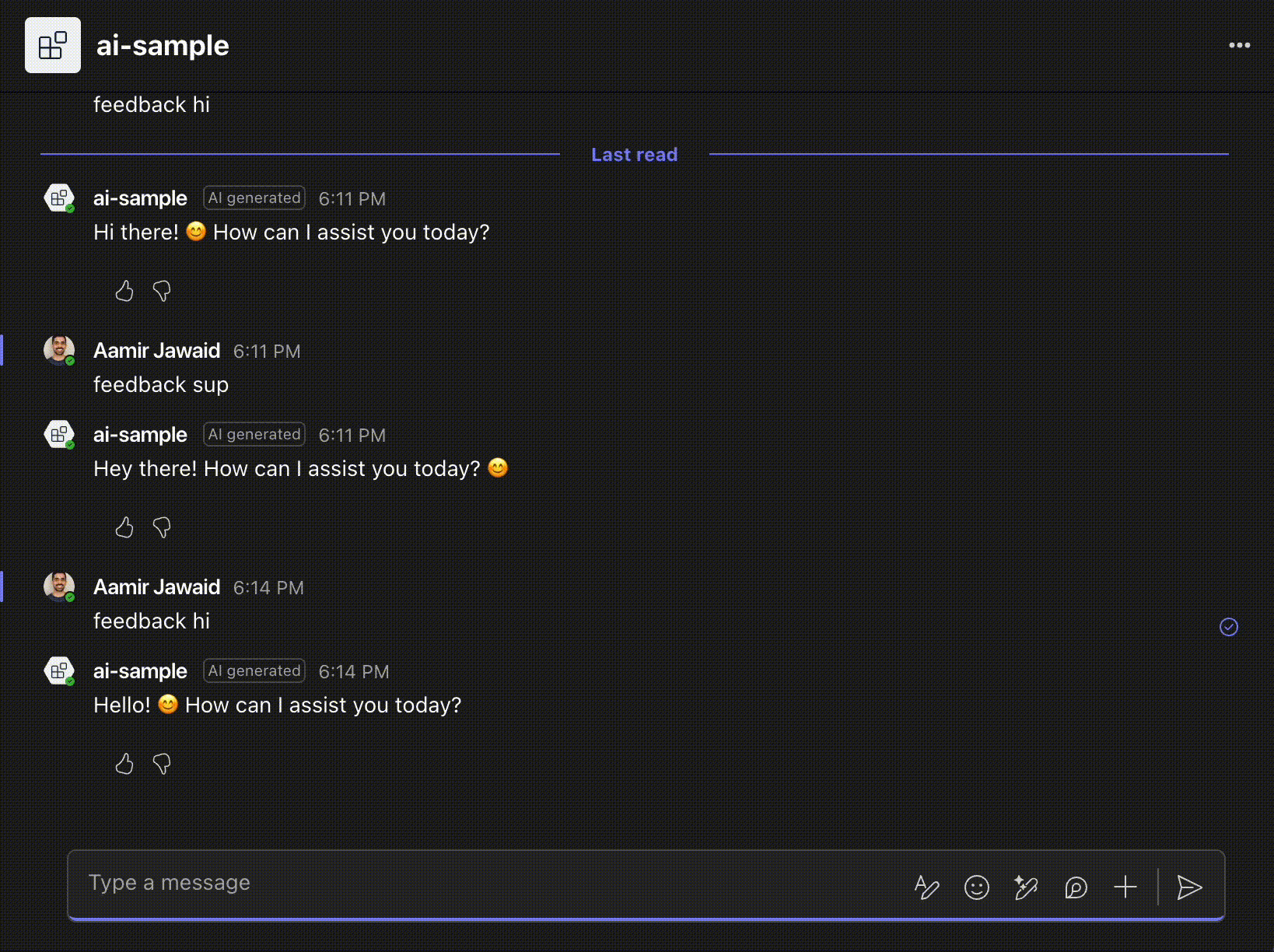Feedback
User feedback is essential for the improvement of any application. Teams provides specialized UI components to help facilitate the gathering of feedback from users.

Storage
Once you receive a feedback event, you can choose to store it in some persistent storage. You'll need to implement storage for tracking:
- Like/dislike counts per message
- Text feedback comments
- Message ID associations
For production applications, consider using databases, file systems, or cloud storage. The examples below use in-memory storage for simplicity.
Including Feedback Buttons
When sending a message that you want feedback in, simply add_feedback() to the message you are sending.
from microsoft.teams.ai import Agent
from microsoft.teams.api import MessageActivityInput
from microsoft.teams.apps import ActivityContext, MessageActivity
@app.on_message
async def handle_message(ctx: ActivityContext[MessageActivity]):
"""Handle 'feedback demo' command to demonstrate feedback collection"""
agent = Agent(current_model)
chat_result = await agent.send(
input="Tell me a short joke",
instructions="You are a comedian. Keep responses brief and funny."
)
if chat_result.response.content:
message = MessageActivityInput(text=chat_result.response.content)
.add_ai_generated()
# Create message with feedback enabled
.add_feedback()
await ctx.send(message)
Handling the feedback
Once the user decides to like/dislike the message, you can handle the feedback in a received event. Once received, you can choose to include it in your persistent store.
import json
from typing import Dict, Any
from microsoft.teams.api import MessageSubmitActionInvokeActivity
from microsoft.teams.apps import ActivityContext
# ...
# Handle feedback submission events
@app.on_message_submit_feedback
async def handle_message_feedback(ctx: ActivityContext[MessageSubmitActionInvokeActivity]):
"""Handle feedback submission events"""
activity = ctx.activity
# Extract feedback data from activity value
if not hasattr(activity, "value") or not activity.value:
logger.warning(f"No value found in activity {activity.id}")
return
# Access feedback data directly from invoke value
invoke_value = activity.value
assert invoke_value.action_name == "feedback"
feedback_str = invoke_value.action_value.feedback
reaction = invoke_value.action_value.reaction
feedback_json: Dict[str, Any] = json.loads(feedback_str)
# { 'feedbackText': 'the ai response was great!' }
if not activity.reply_to_id:
logger.warning(f"No replyToId found for messageId {activity.id}")
return
# Store the feedback (implement your own storage logic)
upsert_feedback_storage(activity.reply_to_id, reaction, feedback_json.get('feedbackText', ''))
# Optionally Send confirmation response
feedback_text: str = feedback_json.get("feedbackText", "")
reaction_text: str = f" and {reaction}" if reaction else ""
text_part: str = f" with comment: '{feedback_text}'" if feedback_text else ""
await ctx.reply(f"✅ Thank you for your feedback{reaction_text}{text_part}!")